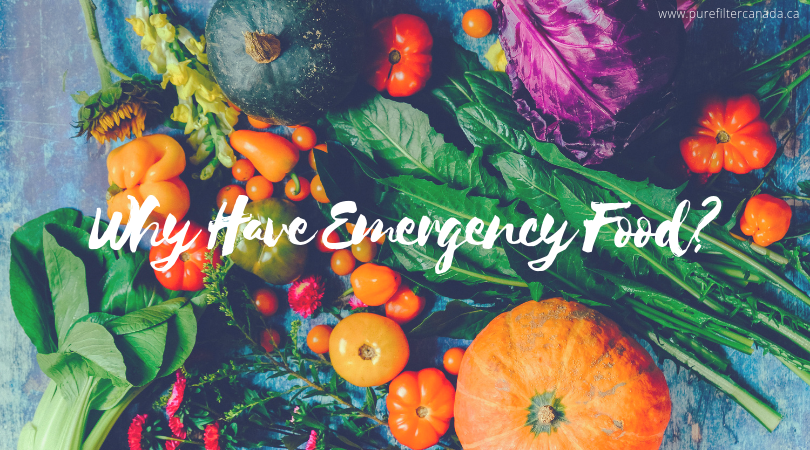Why Have Emergency Food?

The Importance of Having an Emergency Food Supply
Creating an emergency food supply is never a bad idea. This is especially true for those that live in areas where dangerous weather such as tornadoes or flooding often occur. Sometimes, homes have to go without power for days or even weeks. Having a significant amount of food on hand to get your family through these times is important.
Below are the proper steps to take in order to start a food storage for your family, should a serious issue occur.
1. Take your time getting your emergency food supply together so that you do not get overwhelmed. It may take you a few months to get everything you want in your stockpile purchased and stored. That’s okay – the point is that you are taking the necessary steps to getting it done. Make a list of all that you would like to include, and work your way through it by buying a little extra each time you visit the grocery store.
2. Consider what to add to your food storage in the event of an emergency. Non-perishable foods that do not need refrigerated are obviously the ones to include. Think about canned goods, boxed foods that require no water or milk to prepare, and dried fruits. Take into account any special food allergies your family may have so that everyone has plenty to eat.
3. Decide where to store the emergency food supply. It is best to keep it in a dark, cool room so that nothing gets damaged before it needs to be consumed. Keep it in a place that can be easily assessed so that your expiration dates can be checked often. The location also needs to be safe from possible disasters, or else your food may be destroyed before you can eat it during an emergency.
4. Replace foods as they get close to their expiration dates. Eat the foods before they expire to avoid wasting food and your hard-earned money. Be sure to place newer food purchases toward the back of your supply to help prevent dates from being mixed up. If necessary, label the products with your own stickers to ensure that dates are not missed.
5. Think about the supplies you will need to prepare foods kept in your supply. A manual can opener is likely to be a device you will need if you lose power. A small camp stove is also a good idea so that you can cook foods that are better served hot. Store as much bottled water as you can so that you and your family can stay hydrated. Also, you can use it, sparingly, to prepare meals.
Having an emergency food supply stocked up for your family can be a lifesaver if a disaster occurs. It’s always better to be safe than sorry, and I don’t think anyone will argue that food is an important necessity in the times of extreme situations. Above all, take your family’s needs and preferences in mind as you create the stockpile so that everyone will be satisfied.
Additional Tips
If the power goes out, you will not be able to keep foods refrigerated or frozen for long. But you will probably have a fair amount of food in the fridge and freezer. Before breaking into your dried and canned goods, eat your refrigerated first—but only as long as you can maintain them at food safe temperatures. Keep a non-electric thermometer in your fridge and freezer to monitor temperatures.
Once your fridge or freezer climbs above 40 degrees fahrenheit, the clock is ticking, especially on highly perishable items like milk and meat. If you are able to heat foods, cook and eat raw meats before they spoil. Cook and eat frozen meat and vegetables as they thaw. Open your fridge and freezer as quickly and infrequently as possible to keep the food cold for as long as possible. It helps to have a mental picture of what’s in the fridge. Decide what you’re going to remove before you open the door.
I hope that none of you will ever be in a situation that requires it but having a plan for emergencies is an excellent policy. An emergency food supply is just one aspect of a disaster preparedness plan. It’s also important to plan ahead for things like medications, pets, hygiene, communications, and much more.
Our Patriot Pantry emergency food storage solutions have a shelf-life of up to 25 years unopened. The original Patriot survival company.
